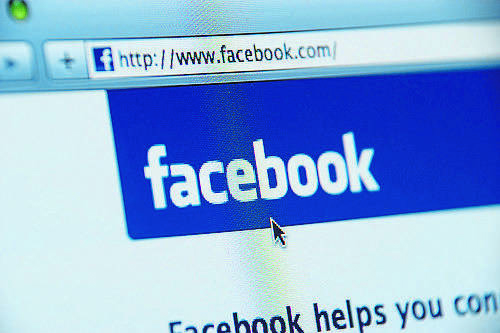https://naviga.triblive.com/local/pittsburgh-allegheny/carnegie-mellon-partners-with-facebook-to-gather-coronavirus-data-from-residents/
Carnegie Mellon partners with Facebook to gather coronavirus data from residents

Carnegie Mellon University is partnering with Facebook to gather data from U.S. residents who are experiencing symptoms of covid-19.
Researchers at the university hope to use the data to forecast the spread of the pandemic and its potential weight on hospital systems.
Some Facebook users will soon see a link at the top of their newsfeed, which will lead them to an optional survey. The questionnaire will ask if the respondent or anyone in their household has experienced common covid-19 symptoms — fever, sore throat, cough, shortness of breath or difficulty breathing. It will also ask how many people in the respondent’s household are sick, the total number of people in the household and the respondent’s ZIP code.
The goal is to gather county-level data on people with covid-19 symptoms. If that’s not possible, the researchers hope to at least get data for hospital referral regions, which consist of several counties.
With help from @Facebook, @CarnegieMellon researchers hope to fill a gap in COVID-19 data, tracking symptomatic infections at the local level to improve pandemic forecasts. @mldcmu @CMU_Stats https://t.co/L06m0CnZV9 pic.twitter.com/ViG1X7LS4F— CMU School of Computer Science (@SCSatCMU) April 6, 2020
The number of people experiencing symptoms is distinct from existing county-level tallies of confirmed cases, said Ryan Tibshirani, an associate professor of statistics and machine learning, and co-leader of CMU’s Delphi Research Group. Data on the number of people who are symptomatic will, theoretically, allow researchers to predict how many will eventually be hospitalized, Tibsharani said.
“The purpose of that is to allow public health officials to prepare and get an idea of what the burden is going to become,” he said.
By focusing on symptoms, Tibsharani said, the data will be more consistent than the number of people testing positive, which varies depending on county resources and geographic region, and often doesn’t lead to hospitalizations.
Tibshirani said Facebook’s assistance is crucial for the research, and he is hopeful other technology companies will soon participate.
“The reason why we want to get data from as many companies as possible is to reflect different demographic groups,” he said. “The people who are likely to click on a link on Facebook … that’s one particular slice of the United States.”
For the best possible results, researchers need a sustained sample size with a broad geographic reach. Facebook, Tibshirani said, will allow the researchers to gather more data than he could possibly imagine. With approximately 2.9 billion Facebook users in the United States, Tibshirani hopes to obtain at least a million responses per week.
“We need the information to be continually reported,” he said. “We need people engaging with this every day until the pandemic is no longer a concern.”
Copyright ©2026— Trib Total Media, LLC (TribLIVE.com)
